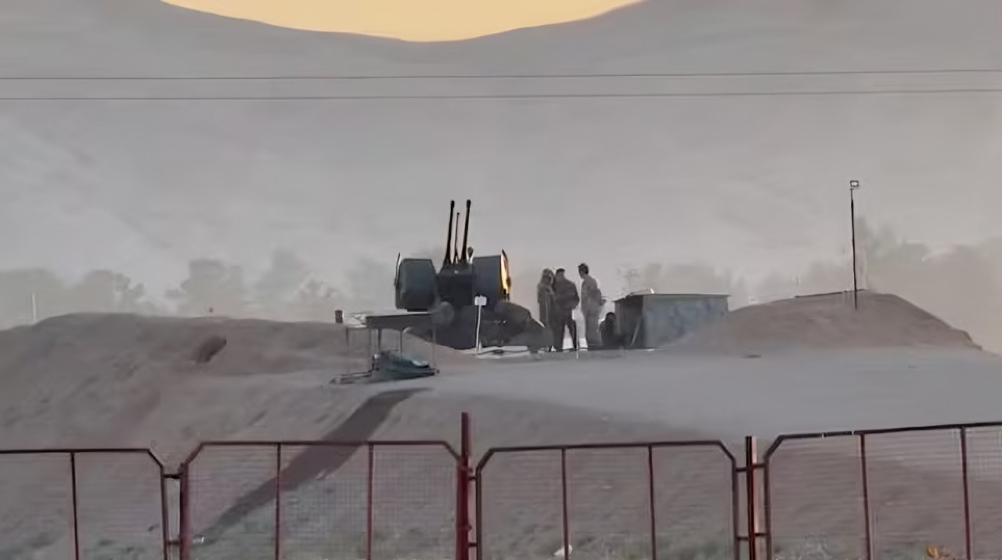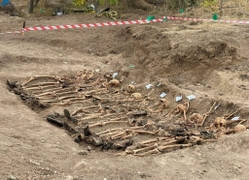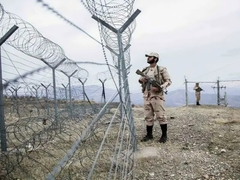Iran’s Foreign Minister, Hossein Amir-Abdollahian, has labeled a foiled Israeli drone attack in certain parts of the country as a "failure" for Israel.
“The media supporting the Zionist regime made a frustrated effort to make a victory out of its repeated failure. They tried to exaggerate the incident while the downed micro air vehicles caused no damage and no casualties,” Amir-Abdollahian said while addressing the envoys of Organization of Islamic Cooperation (OIC) member states at the UN during his visit to New York on April 19, as reported by the Tasnim news agency.
The Iranian minister reaffirmed the "legitimacy" of Iran’s strike on Israel on April 14, stating that Iran could have conducted its operations over a broader area but chose to restrict its attack to the Israeli bases involved in the April 1 attack on Iran’s consulate in Damascus.
According to Iran’s armed forces, the Israeli attacks proved futile as the air defense system successfully intercepted several "suspicious" micro air vehicles (MAVs) in the airspace of the central provinces of Isfahan and Markazi, as well as the northwestern province of East Azerbaijan, near critical nuclear and military-industrial facilities on the morning of April 19.
Iran’s regular army Commander-in-Chief, Maj Gen Abdolrahim Mousavi, played down the attack and dismissed reports of missile strikes, asserting that the air defense acted "wisely" by shooting down multiple flying objects with no ensuing damages.
Discussing the Isfahan incident, Iran’s Army Ground Forces Commander, Brig Gen Kioumars Heydari, emphasized the country’s "robust" air defense response to the "suspicious objects" the previous night.
In contrast, Israeli and US media sources claimed that several drones had struck multiple targets in Iran. The New York Times cited three sources in Iran reporting that an Iranian air force base near Isfahan was among the targets.
The Israeli news website Ynet reported a US official informing CNN that the target was "non-nuclear". Additionally, the International Atomic Energy Agency (IAEA) confirmed the absence of damage to Iran’s nuclear sites, urging "extreme restraint" from all parties and reiterating that nuclear facilities should never be targets in military conflicts. The IAEA pledged close monitoring of the situation.
Haaretz described the attack on Isfahan as "limited", speculating that Iranian denials might exempt the regime from a retaliatory response.
Weapons experts suggest that Israel may have employed a new air-launched ballistic missile for its limited strikes on Iran. Initial Iranian sources claimed that the attacks were drone-based and successfully thwarted.
Unnamed US officials informed US media that Israel launched three missiles from outside Iranian territory at an air defense radar near Isfahan. According to ABC News, the target was an air defense radar system near Isfahan protecting the Natanz nuclear facility, Iran’s primary center for nuclear enrichment.
BBC analysis suggested that the Netanyahu government aimed to signal to Iran its capability to target sensitive sites in the province while refraining from actual strikes at this stage.







 U.S. Secretary of State Antony Blinken reiterated Washington’s unwavering support for the ongoing peace process between Azerbaijan and Armenia in a...
U.S. Secretary of State Antony Blinken reiterated Washington’s unwavering support for the ongoing peace process between Azerbaijan and Armenia in a...
 Iran is moving to fortify its eastern border with Afghanistan in a bid to fight illegal migration and drug trafficking, along with enhancing security.
Iran is moving to fortify its eastern border with Afghanistan in a bid to fight illegal migration and drug trafficking, along with enhancing security.
 The Iranian and Cuban transport ministers have discussed expanding maritime and air transportation cooperation.
The Iranian and Cuban transport ministers have discussed expanding maritime and air transportation cooperation.
 Kyrgyzstan has joined the extensive reconstruction efforts in the Karabakh region of Azerbaijan, after a series of mega initiatives were launched b...
Kyrgyzstan has joined the extensive reconstruction efforts in the Karabakh region of Azerbaijan, after a series of mega initiatives were launched b...



